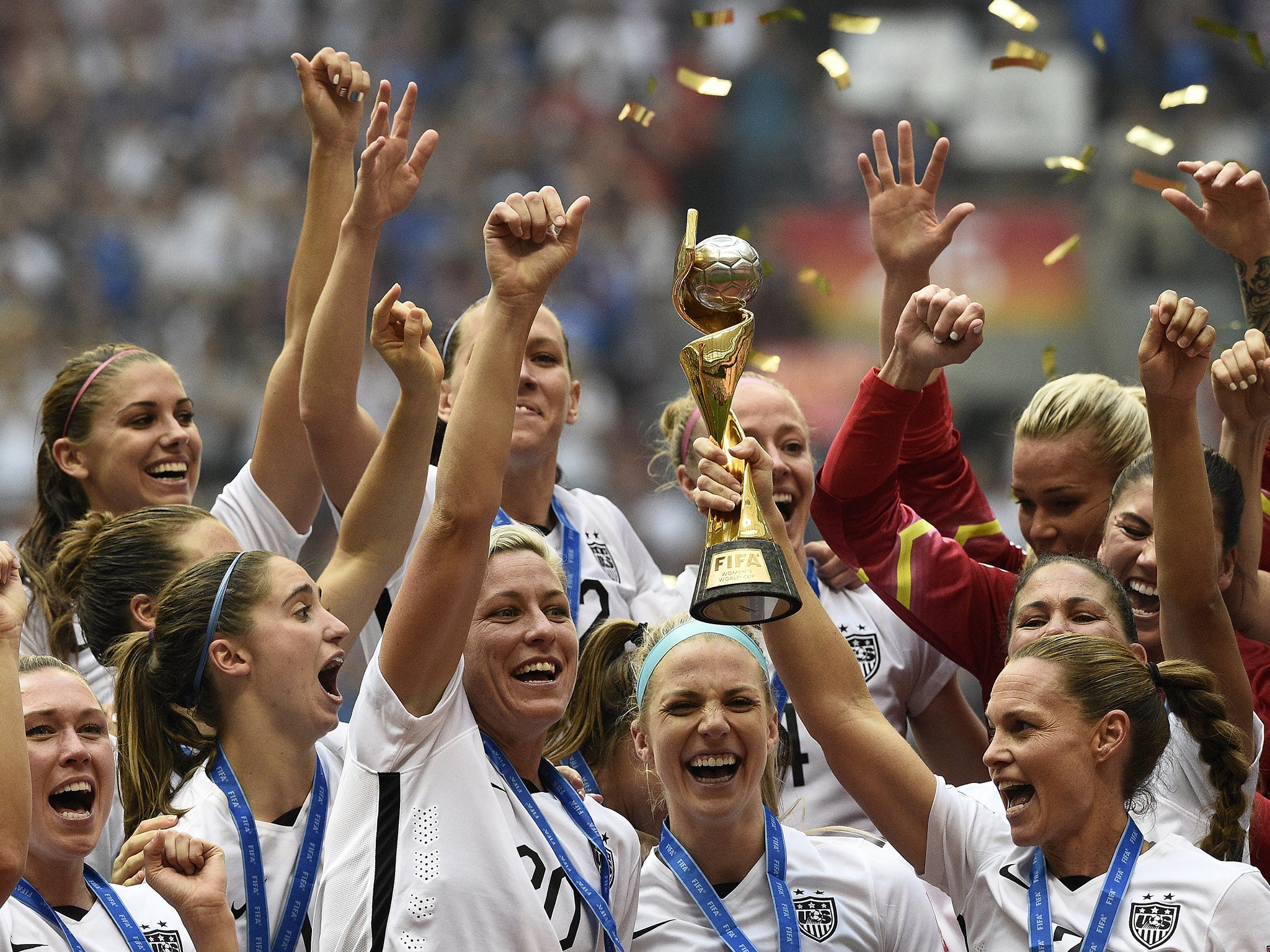Women's World Cup 2015: Gender pay gap exposed as US men's team earn four times the amount despite not even reaching quarter-final
US women earned $2m and the men around $8m

Your support helps us to tell the story
From reproductive rights to climate change to Big Tech, The Independent is on the ground when the story is developing. Whether it's investigating the financials of Elon Musk's pro-Trump PAC or producing our latest documentary, 'The A Word', which shines a light on the American women fighting for reproductive rights, we know how important it is to parse out the facts from the messaging.
At such a critical moment in US history, we need reporters on the ground. Your donation allows us to keep sending journalists to speak to both sides of the story.
The Independent is trusted by Americans across the entire political spectrum. And unlike many other quality news outlets, we choose not to lock Americans out of our reporting and analysis with paywalls. We believe quality journalism should be available to everyone, paid for by those who can afford it.
Your support makes all the difference.Paychecks for the Women’s World Cup show that even world champions are not spared from the gender pay gap.
The US team that beat long-term rivals Japan 5-2 in the World Cup final on Sunday were paid £1.29million ($2m) compared with the total of £22.63m ($35m) to Germany for winning the Men's World Cup. All of the men's teams were given a total of £576million for the World Cup in Brazil. The US men's team earnt around four times as much as the women ($8m), even though they only reached the last-16 of the tournament.
In previous years, poor coverage of women’s sports and lack of interest from advertisers have resulted in less money being given to players. The lack of promotion of women’s sports, despite on-field success, is usually due to the concept among broadcasters that the women’s game will not be of the same standard of men’s.
According to Manish Tripathi, an Emory University marketing professor and co-founder of Emory Sports Marketing Analytics, the gender pay gap in sport is driven by endorsement opportunities, sponsorship, ticket sales and television.
Yet this tournament shattered the TV ratings record and has become the most-viewed football game in US history, with more than 25.4 million people tuning in to see Jill Ellis' team win their third World Cup.
Despite its high exposure and public interest, the salaries of the female players still fall short of the pay received by their male counterparts. In fact, Fifa spent between £15m and £22m on its self-applauding film, United Passions, while the US team will receive a tenth of that amount.
The US men's team received around £5.19m at last year's tournament - they were eliminated in the Round of 16 - while the winning Germany squad were handed around £23m.
In an article published by Politico, writer Mary Pilon outlines the revenue disparity between the sexes in football. The National Women’s Soccer League offer a salary of £4,000 ($6,000) to £19,500 ($30,000), which "may put players below the poverty line in the cities in which they compete", as Pilon explains.
In a letter written to the President of Fifa, Sepp Blatter, New York politician Carolyn Maloney condemned the 'discriminatory policy' against the US women national team: “This year’s World Cup proved that women playing soccer can inspire a country and bring a crowd to its feet just as men can,” wrote Maloney.
“But women will never achieve equality in the sport if Fifa itself discriminates against them….We have heard the excuses for centuries, but the time has come for change. I urge you to take a stand and commit to rewarding men and women equally for excellence on the field.”
Gender inequality is by all means not new to the tournament. Last year, a group of players filed a lawsuit against Fifa claiming gender discrimination over the decision to use synthetic pitches for the Women’s World Cup in 2015 (instead of real grass like in the men’s World Cup).
Despite the challenges caused by playing on an artificial turf, the women fought their way to victory. But what is revealed by their paycheck is that although they have won the World Cup, these women are still playing a man’s game.
Join our commenting forum
Join thought-provoking conversations, follow other Independent readers and see their replies
Comments